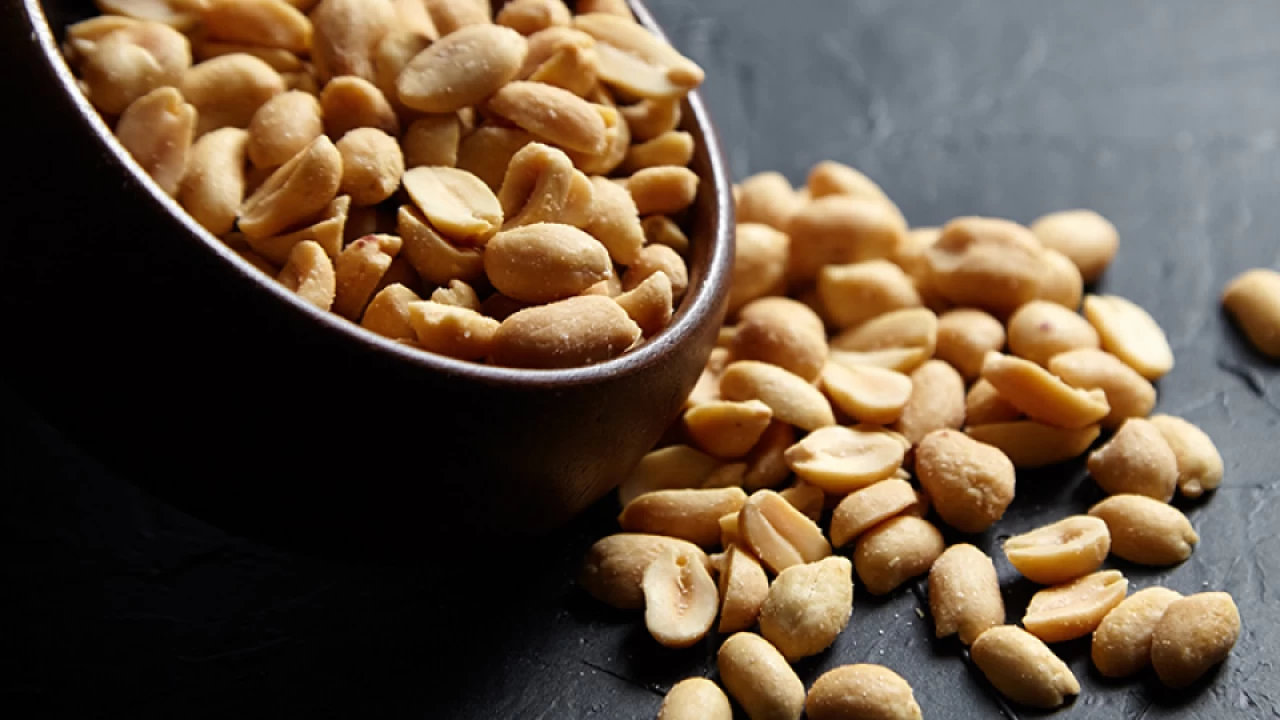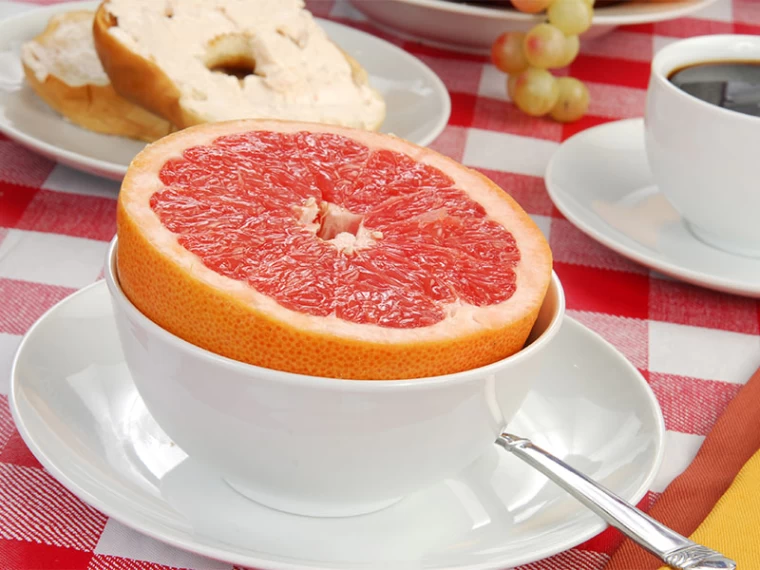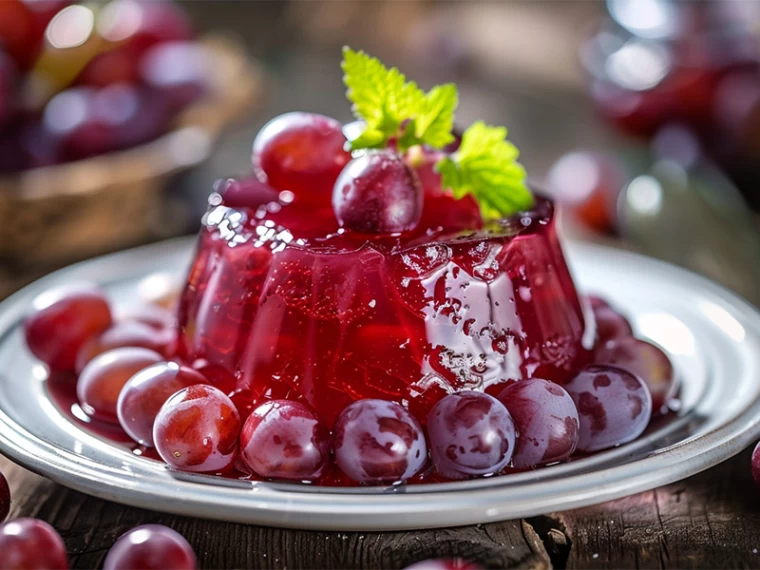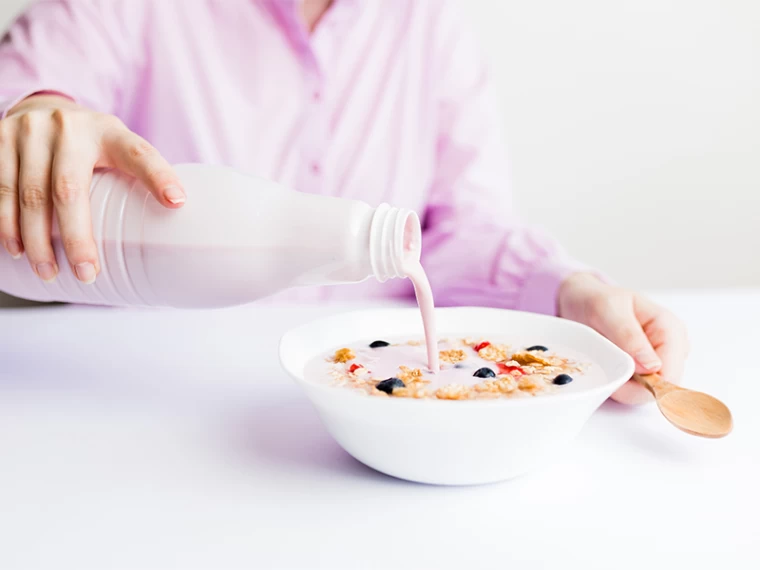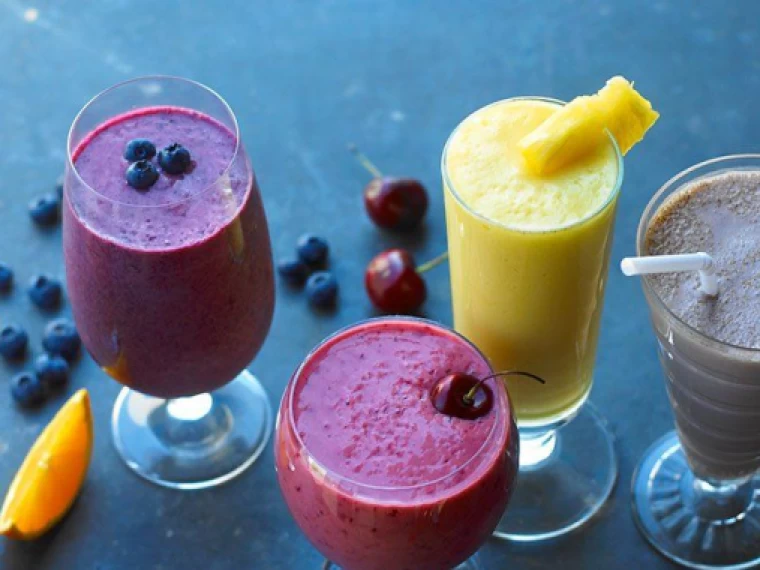Peanuts, one of the popular and nutritious foods worldwide, have found a special place in various diets due to their unique properties and diverse applications. This small seed, despite its name suggesting it is a nut, actually belongs to the legume family and is widely used in cooking, snacks, and even cosmetic products. From a healthy snack to an ingredient in peanut butter or cooking oil, peanuts are not only delicious but also have positive effects on overall health. In this article, we take a closer look at the nutritional properties, health benefits, consumption methods, and precautions of peanuts.
Nutritional Value of Peanuts
Peanuts are rich in nutrients essential for the body. The nutritional value of this food per 100 grams is as follows:
|
Nutrient |
Amount |
Daily Value (%) |
|
Calories |
567 kcal |
28% |
|
Protein |
25 g |
50% |
|
Total Fat |
49 g |
75% |
|
Saturated Fat |
7 g |
35% |
|
Monounsaturated Fat |
24 g |
-- |
|
Polyunsaturated Fat |
15 g |
-- |
|
Total Carbohydrates |
16 g |
5% |
|
Fiber |
8 g |
32% |
|
Sugar |
4 g |
-- |
|
Niacin |
12.1 mg |
85% |
|
Vitamin B6 |
0.5 mg |
25% |
|
Vitamin E |
8 mg |
27% |
|
Magnesium |
168 mg |
42% |
|
Phosphorus |
376 mg |
38% |
|
Potassium |
705 mg |
20% |
|
Zinc |
3.3 mg |
30% |
|
Iron |
4.6 mg |
25% |
Health Benefits of Peanuts
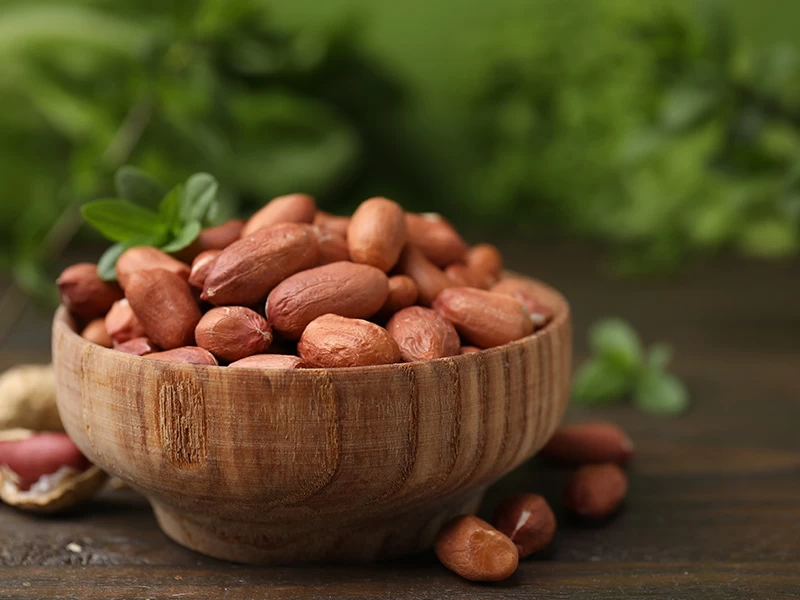
Peanuts are rich in essential nutrients such as protein, healthy fats, fiber, vitamins (especially vitamin E and B group), and minerals including magnesium and phosphorus, which play a significant role in overall body health. This small and nutritious seed helps reduce bad cholesterol (LDL) and increase good cholesterol (HDL), thereby reducing the risk of heart diseases. Due to their high fiber and healthy fats, peanuts create a long-lasting feeling of fullness and are effective in weight management. Additionally, powerful antioxidants in peanuts, such as resveratrol, help prevent cellular damage and reduce the risk of cancer. By boosting the immune system and improving brain function, peanuts are an excellent choice for a balanced and healthy diet.
Rich in High-Quality Protein
The protein in peanuts, containing all essential amino acids (except lysine in small amounts), helps build and repair body tissues. This feature is especially beneficial for athletes and vegetarians looking for protein alternatives.
Healthy Fats
About 80% of the fat in peanuts is unsaturated fat, which helps reduce bad cholesterol (LDL) and increase good cholesterol (HDL). These fats protect heart health and reduce the risk of heart diseases.
Vitamins and Minerals
Peanuts are a rich source of B vitamins, vitamin E, and minerals such as magnesium, zinc, phosphorus, and potassium. These compounds play a key role in increasing energy, boosting the immune system, and maintaining bone health.
High Fiber
The fiber in peanuts helps improve digestive function and prevent constipation. Additionally, fiber has a positive effect on controlling blood sugar levels and reducing appetite.
Heart Health
Regular consumption of peanuts, due to their unsaturated fats, antioxidants, and vitamin E, helps reduce blood pressure, prevent plaque buildup in arteries, and improve heart health.
Weight Loss and Appetite Control
Contrary to popular belief, peanuts can be part of weight loss diets. The fiber and protein in this food create a long-lasting feeling of fullness, thereby preventing overeating.
Prevention of Type 2 Diabetes
The healthy fats and fiber in peanuts have a positive effect on improving insulin sensitivity and controlling blood sugar levels. Research has shown that regular consumption of peanuts can reduce the risk of type 2 diabetes.
Boosting the Immune System
Peanuts contain nutrients such as zinc and magnesium, which are very beneficial for boosting the immune system and fighting infections.
Cancer Prevention
Powerful antioxidants in peanuts, such as resveratrol and folic acid, help reduce cellular damage and prevent the growth of cancer cells.
Improving Brain Function
Niacin and vitamin E in peanuts help improve memory, enhance concentration, and reduce the risk of neurological diseases such as Alzheimer's.
Improving Skin and Hair Health
Healthy fats, vitamin E, and zinc in peanuts help improve skin and hair health. These substances have a positive effect on beauty by reducing skin inflammation, maintaining moisture, and stimulating hair growth.
Uses and Practical Tips for Peanuts
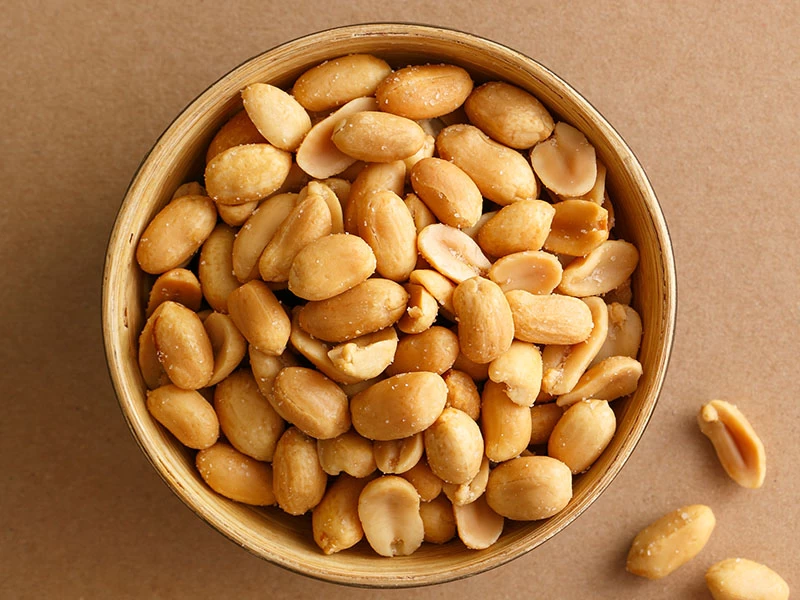
- Raw or Roasted?
Raw peanuts contain more nutrients, but the roasted type is more popular due to its better taste. However, avoid consuming salted peanuts or those with unhealthy additives.
- Peanut Butter:
Peanut butter is one of the popular products of this seed that can be used as a healthy and energetic snack. This butter is widely used in making smoothies, toast, and even desserts.
- Peanut Oil:
Peanut oil, due to its high smoke point and pleasant flavor, is very suitable for cooking and preparing various dishes.
- In Foods and Snacks
- Use in salads as a seasoning.
- Add to soups and Asian dishes like noodles.
- Use as a topping on desserts and ice creams.
Athletes and Peanuts
Peanuts and their products, such as peanut butter, are an ideal snack for athletes, providing the necessary energy for training and muscle recovery.
Precautions and Contraindications for Peanuts
Peanut Allergy:
Peanuts are one of the most common allergens. People who are allergic to this substance should strictly avoid consuming it, as it may cause reactions such as swelling, itching, and even anaphylactic shock.
Overconsumption: Peanuts are high in calories, and excessive consumption may lead to weight gain. Additionally, consuming too many peanuts may cause digestive problems.
Aflatoxin Contamination: Peanuts may be contaminated with aflatoxin-producing fungi, which can be harmful to the liver. Always buy peanuts from reputable sources and store them in a dry and cool environment.
How to Make 2 Types of Peanut Smoothies
Peanut Butter and Banana Smoothie
|
Ingredient |
Amount |
|
Peanut Butter |
2 tablespoons |
|
Banana |
1 medium |
|
Milk |
1 cup |
|
Honey or Date Syrup |
1 teaspoon |
|
Ice |
3-4 small pieces |
Preparation:
- Cut the banana into small pieces.
- Put all the ingredients (banana, peanut butter, milk, honey, and ice) into a blender.
- Turn on the blender and mix for 1-2 minutes or until smooth.
- Pour the smoothie into a glass and garnish with a slice of banana or some peanut butter.
Enjoy!
Note:
- If you want a thicker smoothie, use frozen banana.
- For a healthier option, you can use unsweetened or plant-based milk.
Peanut and Chocolate Smoothie
|
Ingredient |
Amount |
|
Cocoa Powder (raw and unsweetened) |
1 tablespoon |
|
Peanut Butter |
2 tablespoons |
|
Banana |
1 medium |
|
Milk |
1 cup |
|
Honey or Maple Syrup |
1 teaspoon |
|
Ice |
3-4 small pieces |
Preparation:
- Chop the banana and put it in a blender with peanut butter, cocoa powder, milk, honey, and ice.
- Turn on the blender and mix for 1-2 minutes until completely smooth.
- Serve the smoothie in a glass and garnish with cocoa powder or grated chocolate.
Ready to drink!
Note:
- If you like a sweeter smoothie, increase the amount of honey.
- For a protein smoothie, you can add a scoop of protein powder to the mix.
Features of These Smoothies:
- Peanut Butter and Banana Smoothie: Suitable for starting the day with high energy.
- Peanut and Chocolate Smoothie: A delicious option for a snack or post-workout.
These smoothies are quick, healthy, and very nutritious and can be part of a balanced diet!
Conclusion
Peanuts are an amazing food with numerous benefits for physical and mental health. This nutritious seed, with its combination of protein, healthy fats, vitamins, and minerals, can be part of a balanced diet. By consuming peanuts in moderation, you can enjoy their unique properties and lead a healthier life.
Do you include peanuts in your diet?
We would love to hear your experiences and opinions!

